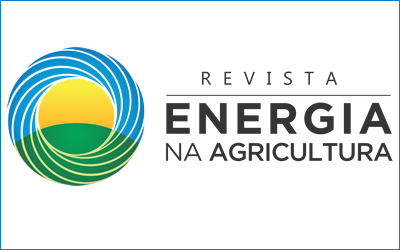ISOTOPIC COMPOSITION (δ13C) AND AUTHENTICITY OF COMERCIAL PULP, TROPICAL JUICES AND NECTARS OF MANGO
DOI:
https://doi.org/10.17224/EnergAgric.2022v37n1p39-51Abstract
The aim of this study was to quantify the carbon-13 of C3 photosynthetic cycle in commercial pulps, tropical juices and nectars of mango through the technique of stable isotopes of carbon to identify the beverages at odds with Brazilian law. The relative isotope enrichment of cane sugar, additives, laboratory-fabricated beverages and commercial beverages was measured in Isotopic Ratios Mass Spectrometer (IRMS). To estimate the error of the isotopic methodology sweetened tropical juices and nectars were produced in laboratory according to their Identity and Quality Standard (IQS) and also adulterated beverages with amount of pulp below of the established by Brazilian law. In these beverages, the theoretical percentage of C3 source was calculated and the practical percentage was determined in IRMS. The difference between these measurements represented the error of the method. The Legal Limit was calculated according to the IQS of each beverage, to determine the legality of commercial beverage. Twenty two brands of mango non-alcoholic beverages were analyzed. Twelve brands were classified as adulterated.
Published
How to Cite
Issue
Section
License
Copyright (c) 2023 ENERGY IN AGRICULTURE

This work is licensed under a Creative Commons Attribution-NonCommercial-NoDerivatives 4.0 International License.
Esta revista proporciona acesso publico a todo seu conteúdo, seguindo o princípio que tornar gratuito o acesso a pesquisas gera um maior intercâmbio global de conhecimento. Tal acesso está associado a um crescimento da leitura e citação do trabalho de um autor. Para maiores informações sobre esta abordagem, visite Public Knowledge Project, projeto que desenvolveu este sistema para melhorar a qualidade acadêmica e pública da pesquisa, distribuindo o OJS assim como outros software de apoio ao sistema de publicação de acesso público a fontes acadêmicas.





